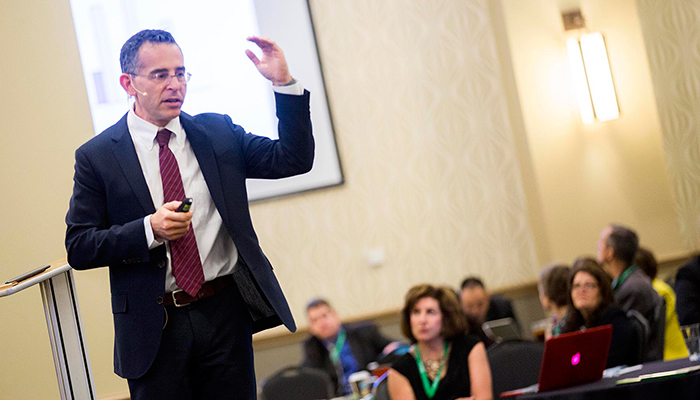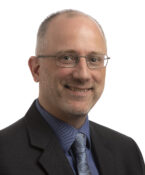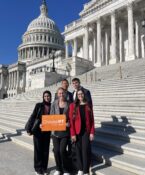Innovative solutions to make health care safer
By Jan Jarvis
Too often patients in pain are prescribed opioids every day, around the clock, for years and years.
The result: A growing number of older patients are becoming addicted to prescription opioids, said Andrew Kolodny, MD, Chief Medical Officer of Phoenix House Foundation Inc., and Executive Director of Physicians for Responsible Opioid Prescribing.
The overuse, he said Thursday at UNT Health Science Center’s Patient Safety Summit, is driving the worst drug epidemic in U.S. history.
“This is affecting people in their 40s, 50s, 60s, 70s and 80s who are developing an addiction entirely to prescription drugs,” Dr. Kolodny said. “When they get addicted, they are not having troubling finding doctors who will prescribe opioids on a regular basis.”
Although the incidence of drug overdoses among this population is extremely high, it’s often not reported because of their age, Dr. Kolodny said. When an older person doesn’t wake up in the morning, a drug overdose is usually not what people think of first.
Experts from some of the country’s leading health care institutions are gathering for two days to focus on innovations in patient safety. The summit is an annual event organized by UNTHSC’s Institute for Public Safety with the goal of improving healthcare and developing ways to reduce medical errors, the nation’s third-leading cause of death behind only cancer and cardiovascular disease.
Presentations ranged from the increasing prevalence of depression in children to the use of genomics to target therapies and limit medication harm from side effects.
Opioids have a place in pain control, but they’re being massively overprescribed, Dr. Kolodny said.
“They’re prescribed not at the end of life or for the short term, but for common conditions when they are more likely to cause harm to the patient rather than help,” he said.
In 2014 there were 259 million prescriptions written for opioids, enough to give every American adult their own bottle of pills, according to the American Society of Addiction Medicine. To address the epidemic, Dr. Kolodny said new cases must be prevented and those who are addicted must be treated.
“That falls on us,” he said. “We have to make sure opioids are being prescribed more cautiously.”
Opioid addiction was among several issues that speakers addressed Thursday. Ways to decrease medication misuse, overuse and medical errors were presented by Katura Bullock, PharmD, Assistant Professor of Pharmacotherapy at the UNT System College of Pharmacy.
People over 65 who are frequently prescribed multiple medications face an increased risk of drug reactions, especially as the number of drugs prescribed increases, she said. The estimated incidence of drug interactions rises from 13 percent in patients taking two medications a day to as high as 50 percent in patients taking five a day. Among those taking seven or more, the risk of adverse effects increases to up to 80 percent.
One way to reduce the risk of mistakes is to prescribe combination pills when available. For someone struggling to manage hypertension, taking one drug instead of two is a lot easier, Dr. Bullock said.
Other speakers included:
- Best-selling author John Nance, who addressed cybersecurity as a patient safety issue in today’s data-driven world.
- Elizabeth Phillips, MD, Director of Personalized Immunology at the Oates Institute for Experimental Therapeutics, who spoke on pharmacogenomics as an emerging opportunity for patient safety.
The summit continues Friday when Christopher (Toff) Peabody, MD, MPH, emergency physician and clinical instructor at the University of California-San Francisco, discusses “The Three Mantras: Establishing a Safety Culture.”






Social media